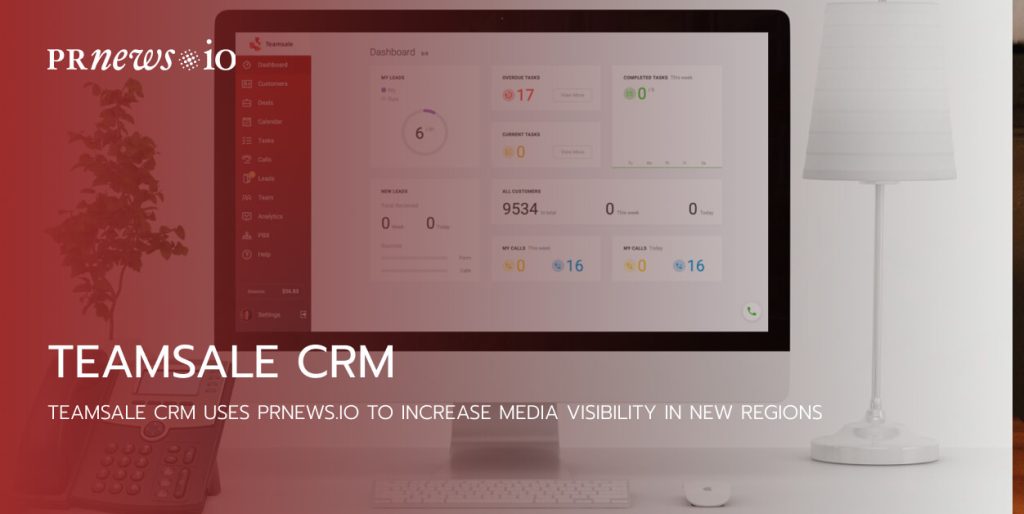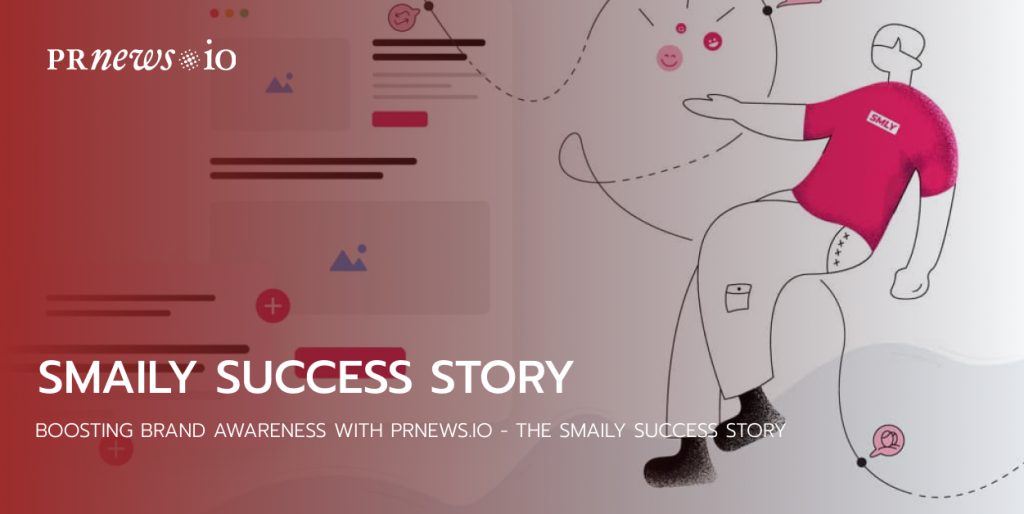
What is Semrush rank? SEMrush was created in 2008. It started with a mission to make online competition transparent and fair. The idea was to create such a platform where everyone can get equal opportunities to boost their projects and businesses. Just in 9 years, the company grew in such a way that everyone wants their service starting from small start-ups to big companies. For SEMrush it all became possible due to their experiments and huge work. Now they are a world-leading reliable research service for digital marketers.
Get extra income from leading brands
What is SEMrush?
SEMrush is a web-based trustworthy analyzing tool, that allows users to monitor not just their own, but also the organic and paid keyword activity of their competitors. This service works by scanning the search engine result pages (SERPs) of Google and Bing US to pick out and pull together the top 20 results for both organic and paid keyword searches.
With a databank that is constantly increasing, SEMrush claims to analyze data for more than 100 million keywords and 71 million domains. This database allows users to analyze their competition operating with keywords, organic rankings for domains and landing URLs, AdWords ad copies, backlink analysis, CPC and ad positions, search and traffic volumes, and more. And with these instruments SEMrush allows businesses to improve their marketing and advertising strategies of the companies.
SEMrush uses a live update algorithm to revise all of its databanks on a daily, weekly, or monthly basis. The program is useful for SEO/SEM professionals, digital marketers, copywriters, and business owners. It does not require downloading and is subscription-based.
SEMrush Rank
The main aim of any online project is to provide a high rank. A high ranking of a website gives your business big opportunities. The assigned rank to the website itself shows which place they take in the competition.
Semrush Rank is its exclusive ranking of the domains on the Internet with the highest organic visibility. It is a custom ranking assigned to each of the 784 million desktops and 32 million mobile domains that Semrush tracks.
SEMRush reveals whether SERP results are overcome by high authority domains with well-established organic rankings for multiple keywords. It is the rank that the domain ranks in its domain database, how visible a domain is in organic search rankings for the one hundred million plus keywords Semrush tracks. So the lower the rank number, the bigger the website’s online presence, and the better the rank. For example, websites like Wikipedia, Youtube, and Facebook all have SEMrush rank of less than 10.
Content Marketing Platform
- 100,000+ media publications;
- get backlinks to your product;
- scale work with content distribution.
How Is It Calculated?
The ranking is built on monthly data from the Semrush database and can be used for any regional database. Historical data in this report turns back to January 2012. SEMrush rank is based on how much estimated monthly traffic websites are getting from organic search. This feature estimates the exact domain against 40 million domains based on traffic/costs/ad keywords etc.
SEMrush rank is calculated by measuring the estimated traffic that goes to a domain from all of the organic positions they have for the domain in SEMrush’s database.
This rank is based on the total organic traffic and the value of this traffic. So if you see a domain with high traffic but a relatively low traffic price, you may conclude that it has targeting keywords that do not convert very effectively.
Keep in mind that SEMrushes’s database can keep all of the rankings that a domain has within Google’s first 10 results pages. To be able to analyze this report you need to understand the next parameters:
SE Keywords stands for the number of organic keywords that the domain has rankings for within Google’s first 10 results pages.
SE Traffic is the estimation of how much traffic the domain gets from its SE Keywords. It is calculated by multiplying the average click-through rate for the positions the domain has. It also shows how much monthly search volume each keyword has. Therefore this number is a monthly valuation of organic search traffic.
Costs are the approximated price of acquiring that level of organic search traffic if a domain were to pay for Google Ads ads and get traffic from the same keywords. So, this is not an amount that the domain is spending. This is an estimation of how valuable their organic traffic is based on the price of advertising on the keywords that they get organic traffic from.
Paid keywords show you the number of keywords, where Semrush found out the domain buying in Google Ads to launch a PPC ad on the search results page.
Paid traffic is a metric that shows the amount of monthly traffic the domain receives from the paid keywords Semrush found the domain advertising on.
What Are the Best Uses of It?
This report is useful if you are going to create a brand new website and need to find positions that aren’t dominated by major high-authority online projects. The first step is getting a URL in the top 20 results which aren’t so valuable. Later, when your domain becomes well-established, you’re ready to attack the first page. The next reports will be useful for this:
Competitive Analysis Reference
You can use this report as a helpful tool for any competitive analysis or Internet research. Compare Semrush ranks between multiple websites to understand how much stronger or weaker a competitor’s web presence is to yours. The closer the Semrush Rank is to the top, the stronger the website’s online presence.
Lead Generation & Prospecting
With this report, you can find out which domains from this list have the most paid keywords, paid traffic, and approximate paid traffic budget.
If you work in marketing and want to find leads that already spend a certain amount of money on PPC ads, this report will be a great place to look for you.
Global Internet Research
Since Semrush Rank can be calculated in any of our local databases, you could identify the top websites in various global niches to compare how popular domains perform in different parts of the world.
For more information you can cross-reference Semrush Rank with other ranking-related metrics and reports on Semrush:
1. Winners & Losers – a list of the domains that have made the biggest progress and fallen in a global view. This report is a great resource for scanning the top domains and identifying popular websites that are improving their presence on search engines.
You can discover each month’s biggest winners and losers by:
- Organic search keywords
- Organic search traffic
- Costs (value of organic traffic, based on Google Ads pricing for organic keywords of a domain)
- Paid search keywords
- Paid search traffic
- Paid traffic price
2. Traffic Rank – a list of domains based on how many monthly visits they attract. It measures the most popular websites within our database based on the number of users visiting their sites.
Industry Experts: Semrush vs. Ahrefs
Gilad Zilberman – CEO at SeatPick

Website ranking tools such as Ahrefs and Semrush all have their own methodology to rank websites, and neither of these methodologies is 100% in line with how Google sees and ranks websites. However, it does not mean that Semrush or Ahrefs ranking is useless or unimportant.
In fact, Semrush’s website ranking is very much relevant, and growing it will help your website a lot.
In terms of which tool provides the most “accurate” results, the answer is that it depends on a lot of factors. Either way, choosing Semrush, Ahrefs, or any other ranking tool is a good way to see how well your website performs, regardless of the small ranking differences between the tools.
Kelly Jacobson, Senior Content Strategist at Schedulicity

I’ve been using SEMrush for almost two years now to complement the data from Google Analytics and Google Search Console. Based on my experience, I think SEMrushrank matters only if you know how to digest the data.
Search engine visibility fluctuates so often, so it’s hard to say, “Yes, we’re ranking No. 1, according to SEMrush, for these keywords” or “Yes, this page is in the SERPs.” Google is constantly updating its algorithms, and searches evolve as quickly as people and language.
SEMrush rank matters in the sense that it gives you a trending idea and a ton of supplemental data, including SEO and traffic information, to understand where you truly stand in search engines. If you can compare that to historical data, other analytics platforms, and your competitors, it offers a fairly full picture.
I do think it’s more reliable than Ahrefs and similar software, just because it’s the most comprehensive in my experience.
Serbay Arda Ayzit, founder and Digital Marketing Expert

SEMrush rank is an important factor when it comes to evaluating the relevance and authority of a website. However, other metrics should also be considered, such as Ahrefs rank, Semrush rank, Alexa rank, and Similarweb rank.
At its core, SEMrush Rank measures the popularity and reach of a website, as well as its authority and relevance in a given niche. It is beneficial for online businesses that must ensure their website has the visibility and credibility needed to attract customers and convert sales.
The most relevant website ranking metric is Semrush which is generally regarded as the gold standard in measuring online visibility and overall website ranking. Other metrics, such as Alexa and Similarweb, may also be helpful for specific applications but tend to lag compared to Semrush’s comprehensive data set and sophisticated algorithm. Semrush is constantly updating and improving its data to provide users with the most accurate information possible, which makes it an invaluable resource for all digital marketers. Whether you’re looking to improve your website’s SEMrush rank, track competitor performance, or stay on top of industry trends, Semrush is the tool for you.
James Calderon, editor InChief at Alrigh.com

Currently, the most relevant website ranking is Ahrefs and Semrush. These websites offer a variety of tools that can be helpful for online marketing research.
Ahrefs is a comprehensive tool that allows users to track and analyze website traffic. This tool can also be used to identify and analyze competitors’ online marketing strategies. Semrush is a similar website that offers a range of marketing research tools. This includes keyword research, competitor analysis, and social media monitoring.
James Parsons, Founder & CEO of Content Powered

In the online world, all metrics and analytics have value (if you want them to). If a marketing agency invests in SEMrush as its go-to platform for SEO metrics, then the information provided by SEMrush is the updates you’ll live and die by. If you are fully invested in Ahrefs, then those metrics are what you’ll follow each day religiously.
A good marketer tracks as much as they can across as many platforms as they can. Over time, you understand what metrics mean the most to you, the client, and hold the most weight for your success. In time, you’ll be able to better figure out what platforms are worth it – and what ones are not.
Metrics are important in SEO and SEMrush provides a ton of worthwhile data, but it’s not the only option for you right now. Do your research, figure out what you are looking for, and make decisions based on your situation.
Sebastian Gonzalez, Organic Search Specialist at tandem.buzz
I am well-versed in a variety of different platforms, including SEMRush and Ahrefs. While both tools are extremely valuable in their own ways, I believe that SEMRush is the better tool for keyword rankings. To illustrate why it is important to realize that these tools are more geared toward different facets of SEO. AHRefs is more geared toward the technical aspects of a website while SEMRush is more geared toward keywords and keyword rankings. This means that they allocate more resources towards finding the volume of the keyword and how difficult it would be to rank for.
There are also more tools that allow you to compare keywords to each other and how your website compares to others.
Ryan Gorenflo, Marketing Manager for Mr. Roof
SEMRush and Ahrefs are the leaders in SEO tracking and reporting. Personally, I believe Ahrefs is the industry leader and does the best job of providing actionable insight and data that can be leveraged by marketers like me.
SEMRush is another great option but just doesn’t seem to have the same reputation as Ahrefs right now (or in the past). The only metric that can compete with the information published by Ahrefs is Moz’s Domain Authority.
Moz’s free toolbar extension is a great tool that provides a ton of information for free and is so easy to use. People take a lot of stock in Moz’s Domain Authority and use it often in evaluating websites, link values, and so much more. For some reason, more people reference Domain Authority (DA) than Ahrefs’ Domain Ranking and I believe that’s because of its convenience. Personally, I take more stock in the data available on Ahrefs than anything else, but I do enjoy how easy it is to access Moz’s toolbar and the Domain Authority.
Paul Wells, Content Lead & Eco Activist at SustainableTag.com
The discussion is far from over when debating which website rank matters most. Each of these ranking tools, such as Ahrefs, Semrush, Alexa, and Similarweb has its own unique approach to measuring a website’s performance.
Ahrefs measures the popularity and backlink profile of websites while Semrush focuses more on organic search traffic and keyword ranking. Alexa analyses website metrics such as domain reach, page views, bounce rate, and time on site while Similarweb focuses on overall performance including traffic sources and engagement metrics.
So the answer to which website rank matters most really depends on your own needs and priorities. If you’re looking for an accurate picture of a website’s organic search traffic and keyword ranking, then Semrush can be a useful tool. On the other hand, if you’re looking for insights into website metrics like domain reach, page views, and time on site, Alexa may be a better choice.
Emanuel Petrescu is a Toronto SEO specialist

The most relevant metric is Page Rank, the one that Google uses and at one point in history, it was available to the public. Not anymore, so each tool has its own metric to measure. Within the link-building industry MOZ domain, authority and page authority score seem to be popular alongside Ahrefs’ domain rating.
So probably these two should be the most relevant but at the end of the day, all of them will give you similar scores – it’s not like a tool will tell you a number and the other will tell you another number, completely disproportionate.
As with everything else in SEO (and digital marketing), take everything with a grain of salt. These metrics can easily be manipulated (to an extent, this is what we, SEOs are doing) with no real value added.
Oberon Copeland, Owner & CEO Of Veryinformed.com
A website’s ranking on search engine results pages (SERP) is determined by a number of factors, including the quality and quantity of the site’s backlinks, the relevancy of its keywords, and the freshness of its content. However, one factor that is often overlooked is the site’s domain authority. Domain authority is a metric that measures the strength of a website’s link profile, and it is used by many SEO experts to predict a site’s SERP ranking.
SEMrush is a popular tool for checking a website’s domain authority, and it is often used by SEO professionals to benchmark a site’s progress. However, some experts believe that SEMrush’s domain authority metric is not an accurate predictor of SERP ranking. In fact, they argue that SEMrush’s metric is based on an outdated concept of link popularity and that it does not take into account more recent factors such as keyword relevancy and content freshness. As a result, they believe that SEMrush’s domain authority metric should be taken with a grain of salt.
Online Publicity Workbook
- 100+ content ideas for your B2B startup;
- ideal for do-it-yourself publicity plans;
- schedule your PR campaign in advance.
Bottom Line
SEMrush is your private keyword researcher. The website and keyword databank are updating so often that your competitive analysis and keyword (organic and paid) research will always be up-to-date, helping for more efficient SEO and PPC campaign development.
The service is clear, intuitive, and engaging. SEMrush can also be used for strategic online planning. You may find potential gaps in your business that are yet to be targeted by your competitors, which is a great way to tap into new segments of the niche.
Whilst the traffic analysis provided by the service may not align with your traffic reports in Google Analytics, the keyword data is highly precise. SEMrush can serve you with great confidence when performing a competitive analysis or planning your next SEO or PPC campaign. Having this knowledge will allow you to do more to improve your strategies and gives you the chance to move up the ladder, both on organic and paid searches.
SEMrush is one tool marketers should use. Do you use SEMrush? Tell me about your favorite features and experiences with this tool.
FAQ: What is semrush rank
What is SEMrush rank?
Semrush Rank provides a range of data about each domain in the business niche. It allows to estimate the size of the business compared to each other, and find out how big their advertising budget is, how many keywords they cover and how their websites perform in different countries and locations.
What is a good SEMrush rank?
The lower the number, the better the rank.
How to check ad rank SEMrush?
To check ad rank SEMrush you should go to the Position Tracking report in SEMrush. The Advertising toolkit covers the following processes:
- Competitive Analysis
- Keyword Research
- Ad Research and Creation





